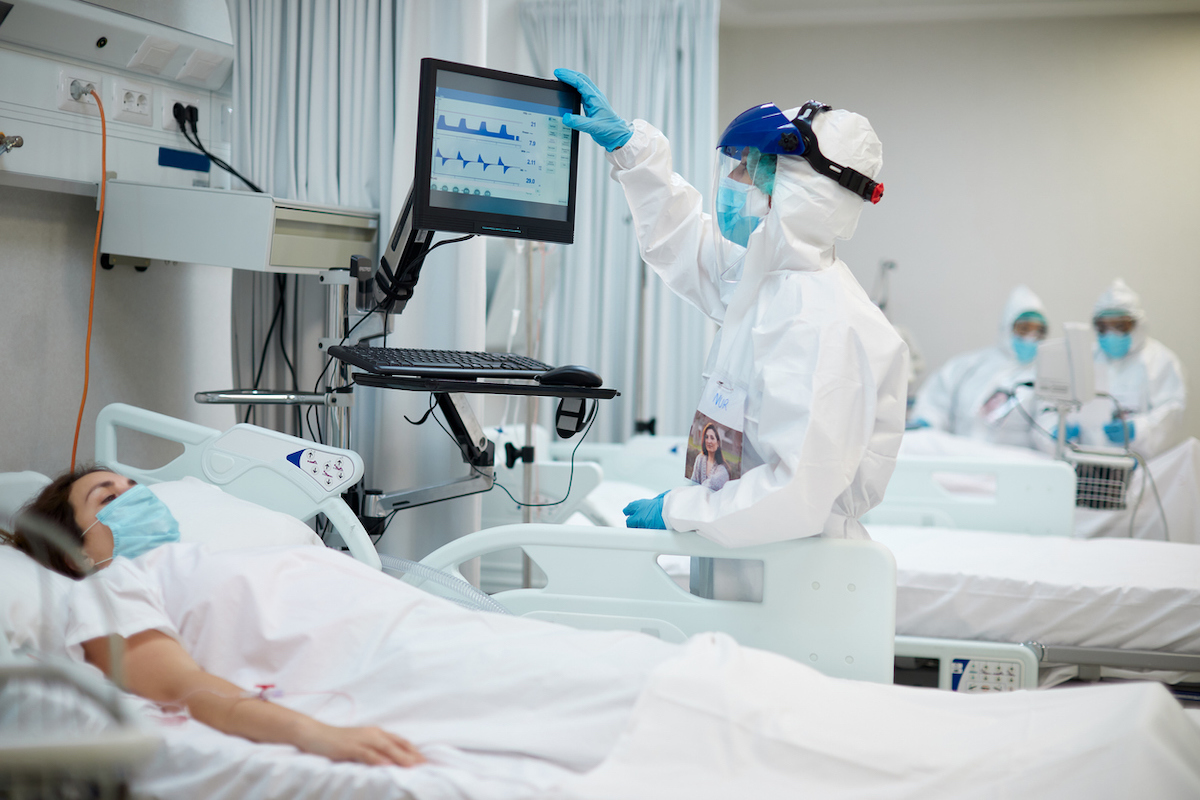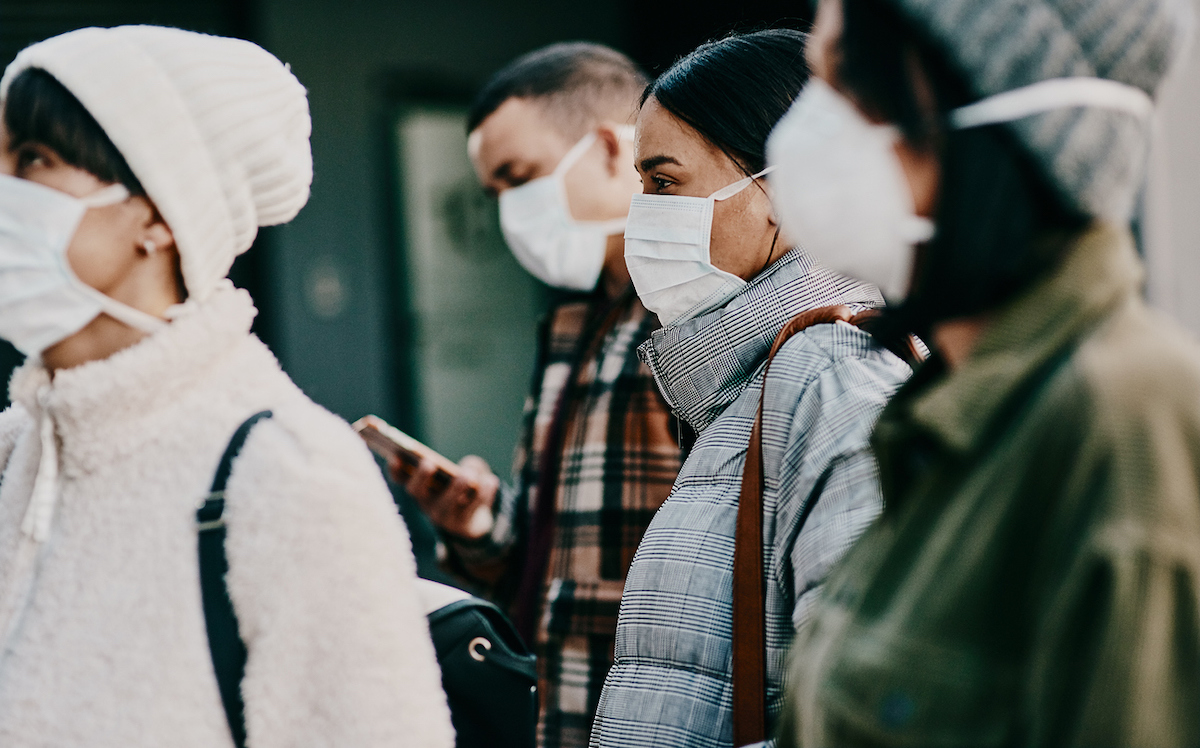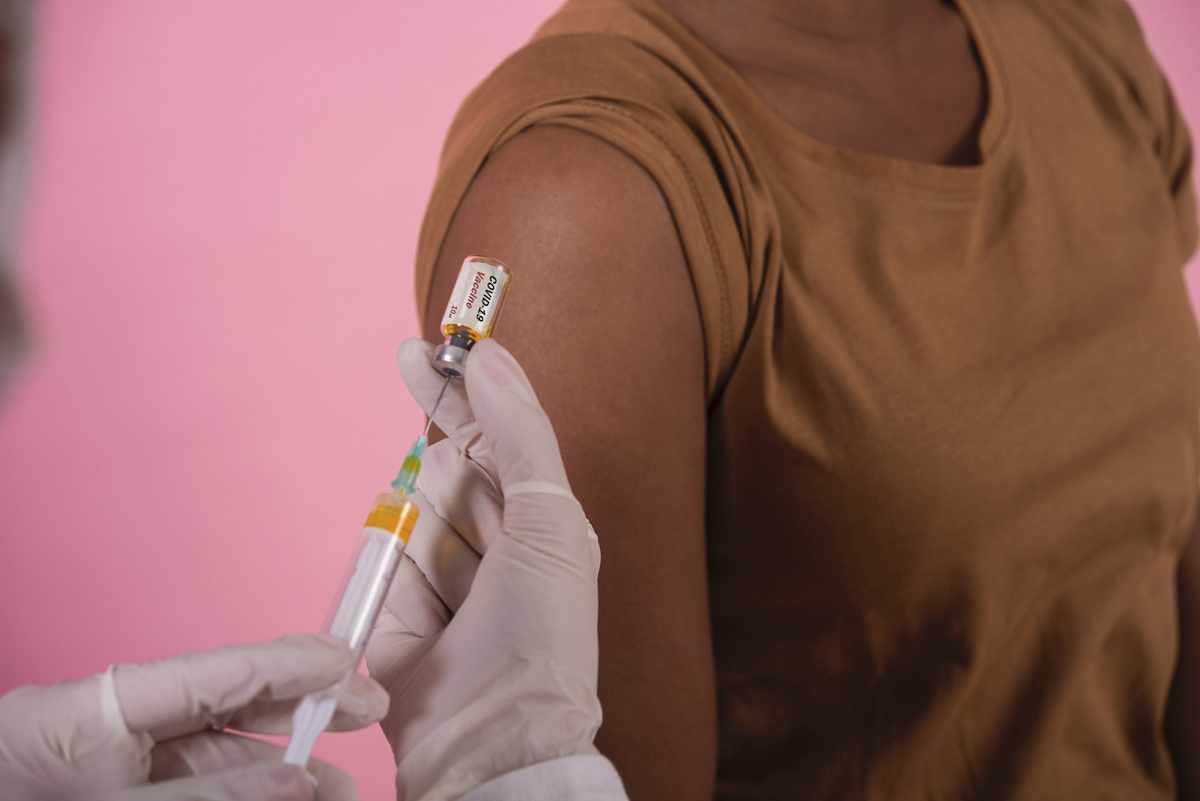“We need to understand that RNA viruses, like coronaviruses, mutate all the time,” Fauci explained. “Most of the mutations don’t have any physiological relevance with regard to the function of the virus itself. However, every once in a while, you get mutations, either singly or clustered in combinations, which do have an impact.” While he said the U.K. strain has “a greater degree of transmissibility—about twice as much as what we call the ‘wild type’ original virus”—it doesn’t appear to have caused any kind of substantial changes in the virus. However, the South African strain, which has yet to be spotted in the U.S., is a bit different. Read on to hear more about the challenges with the South African strain, and for more on how the virus is spreading, be aware that You’re More Likely to Get COVID From Someone Doing This Than From Coughing. In an earlier discussion with California Gov. Gavin Newsom, Fauci explained that antibody treatments work against a “very specific component of the virus,” called the spike protein. The reason why the South African strain has medical experts on alert is because it has more mutations to the spike protein, which is not only where the virus enters the body’s cells, but also where vaccines and treatments are targeted. So if that component is heavily mutated, it could render treatments less powerful. “We’re seeing in the much more concerning mutations that are in South Africa—and in some respects, Brazil, which is similar to South Africa—that it is having an effect on the monoclonal antibodies … that are being used for treatment, in some cases, and prevention,” Fauci said during the Jan. 21 press conference. “Since monoclonal antibodies bind to a very specific part of the virus, when there’s a mutation there, it has much greater chance of obliterating the efficacy of a monoclonal antibody.” And for more from Fauci on how you can stay safe, check out Dr. Fauci Says You Need One of These at Home to Avoid COVID. Earlier this week, a new study from the National Institute for Communicable Diseases (NICD) of the National Health Laboratory Service (NHLS) in Johannesburg, South Africa, where 501Y.V2 has been spreading, was released in pre-print to bioRxiv. The researchers took blood from 44 patients who had recovered from COVID-19 prior to September, which is when the South African strain of the virus was first discovered, according to CNN. Original thinking was that patients who had recovered from COVID-19 would have a degree of natural immunity, as this cycle of infection and survival is the body’s way of commonly “learning” how to fight off a virus in future. But the South African strain might change that. The new findings, which have not yet been peer-reviewed, indicate that half of the patients were not protected from the new variant by their natural antibodies. “501Y.V2 shows substantial or complete escape from neutralising antibodies in COVID-19 convalescent plasma,” the researchers wrote. Their research “highlight[s] the prospect of reinfection … and may foreshadow reduced efficacy of current spike-based vaccines.” And for more regular COVID news, sign up for our daily newsletter. Based on this early research, Fauci told reporters on Jan. 21 that “we likely will be seeing is a diminution—more South Africa than U.K. … in what would be the efficacy of the vaccine-induced antibodies.” However, he made clear that “that does not mean that the vaccines will not be effective.“ae0fcc31ae342fd3a1346ebb1f342fcb According to Fauci, “if you have a vaccine, like the Moderna and the Pfizer vaccine, that can suppress the virus at a dilution, let’s say, of 1 to 1,000, and the mutant influences it by bringing it down to maybe 1 to 800, or something like that, you’re still well above the line of not being effective. So there’s that ‘cushion’ that even though it’s diminished somewhat, it still is effective.” Fauci added that he was “really optimistic,” noting that if vaccines needed to be adapted, “that is not something that is a very onerous thing. We can do that given the platforms we have. But right now, from the reports we have—literally, as of today—it appears that the vaccines will still be effective against them, with the caveat in mind you want to pay close attention to it.” Rochelle Walensky, MD, the new director for the Centers for Disease Control and Prevention (CDC), was similarly reassuring about this new COVID strain. “I could be wrong. It could be that we’ll find variants and variants may emerge … where the vaccine is less potent, but I’m still currently optimistic,” Walensky told JAMA Network earlier this week. And for insight into what Fauci experienced with his vaccination, check out Dr. Fauci Says He Had These Side Effects From His Second Vaccine Dose. Fauci stressed that as new variants emerged, our best route forward is to be “vaccinating as many people as you possibly can,” as viruses are more able to mutate when they are present in a larger proportion of the population. “If you can suppress that by a very good vaccine campaign, then you could actually avoid this deleterious effect that you might get from the mutations,” he said. If vaccine levels can reach 70 to 85 percent of the population by the middle or end of the summer, then, Fauci says, “by the time we get to the fall, we will be approaching a degree of normality. It’s not going to be perfectly normal, but one that I think will take a lot of pressure off the American public.” And for one way you may be safe from the virus, check out This Rare Trait Could Keep You Safe From COVID, According to Doctors.



